DEVELOPABLE HELICOID
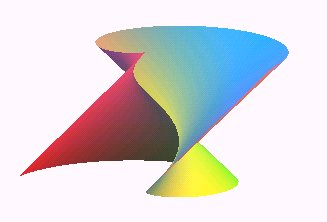
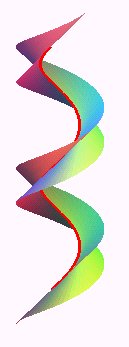
| next surface | previous surface | 2D curves | 3D curves | surfaces | fractals | polyhedra |
DEVELOPABLE HELICOID


| Other names : torse helicoid, helical torse, open evolvent helicoid. |
| Cartesian parametrization: Curvature lines: the generatrices and the level curves. |
The developable helicoid is the surface generated
by the tangents to a circular
helix.
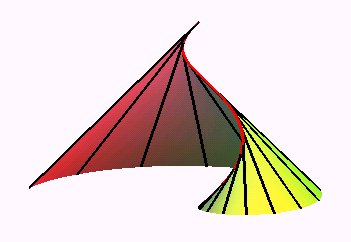
Figure showing the helix and its half-tangents. |
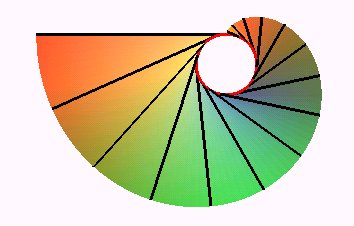
View from below |
It is a surface of equal
slope (like any surface generated by the tangents to a helix), and
it is the only helicoid
to be developable.
Being generated by a line of a rolling plane without
sliding on a cylinder of revolution, it is a molding
surface.
| The level curves (sections by horizontal planes) are involute of circles; they are the involutes of the cuspidal edge (which is a helix) as well as the involutes of the cylinder that contains the helix. | 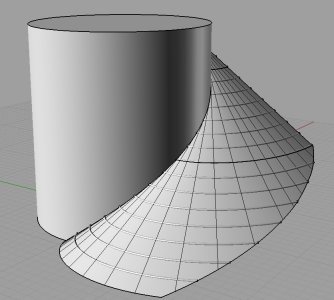 |
| The parametrization of the section by the plane y
= 0 is: |
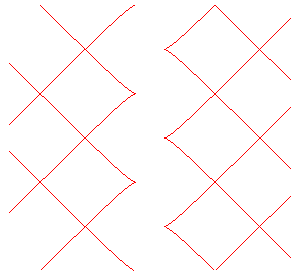 |
| Modeling of the developable helicoid by Robert March,
professor at the Paris school of architecture, who also proposes the following
concrete production:
take a tinfoil roll, unwind a length of foil equal to its width, form a right triangle by folding diagonally, re-wind, and unwind again while keeping the foil tight; the diagonal generates the developable helicoid and its tip a beautiful involute of a circle. |
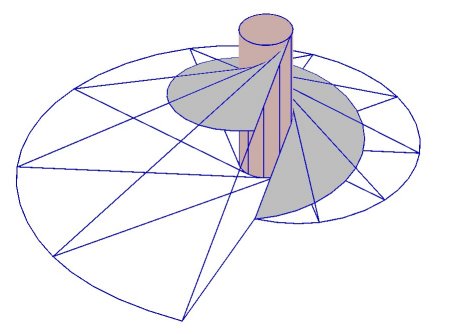 |
| Entrance staircase of the Louvre by the Pyramid.
Of course, the stairs generate a right helicoid but the surface under the staircase (the intrados) is a portion of a developable helicoid. Notice indeed that the visible outline of the surface is composed of linear generatrices (cf. red lines). |
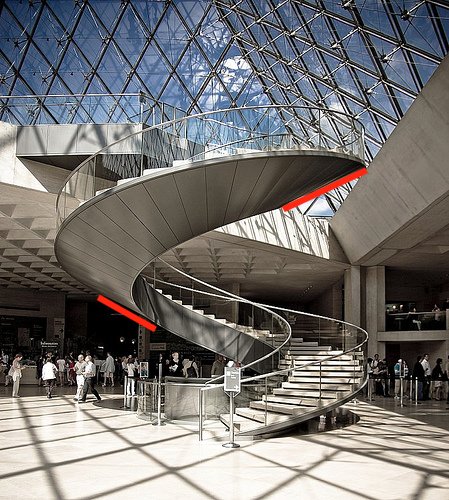 |
| next surface | previous surface | 2D curves | 3D curves | surfaces | fractals | polyhedra |
© Robert FERRÉOL 2017